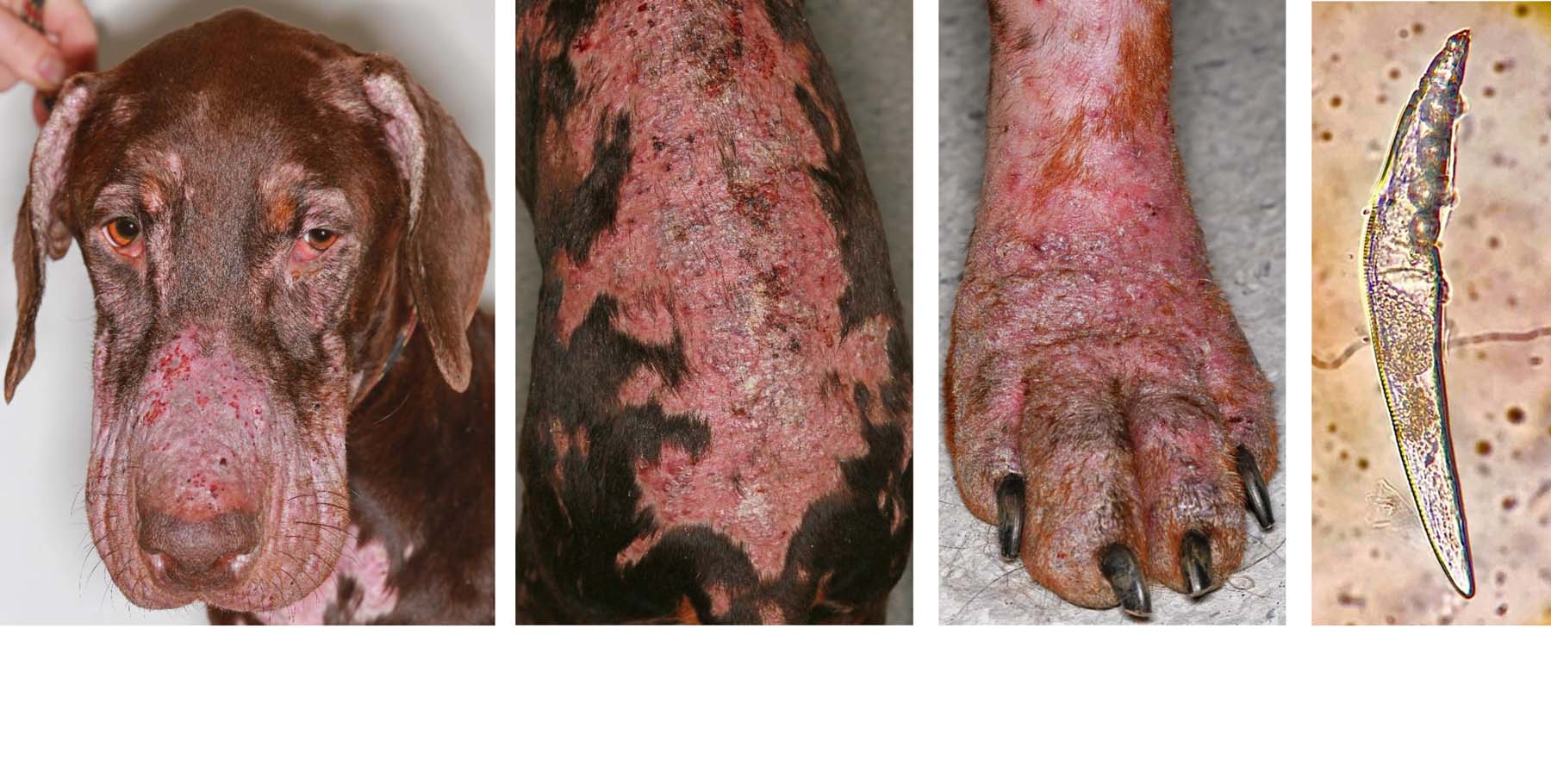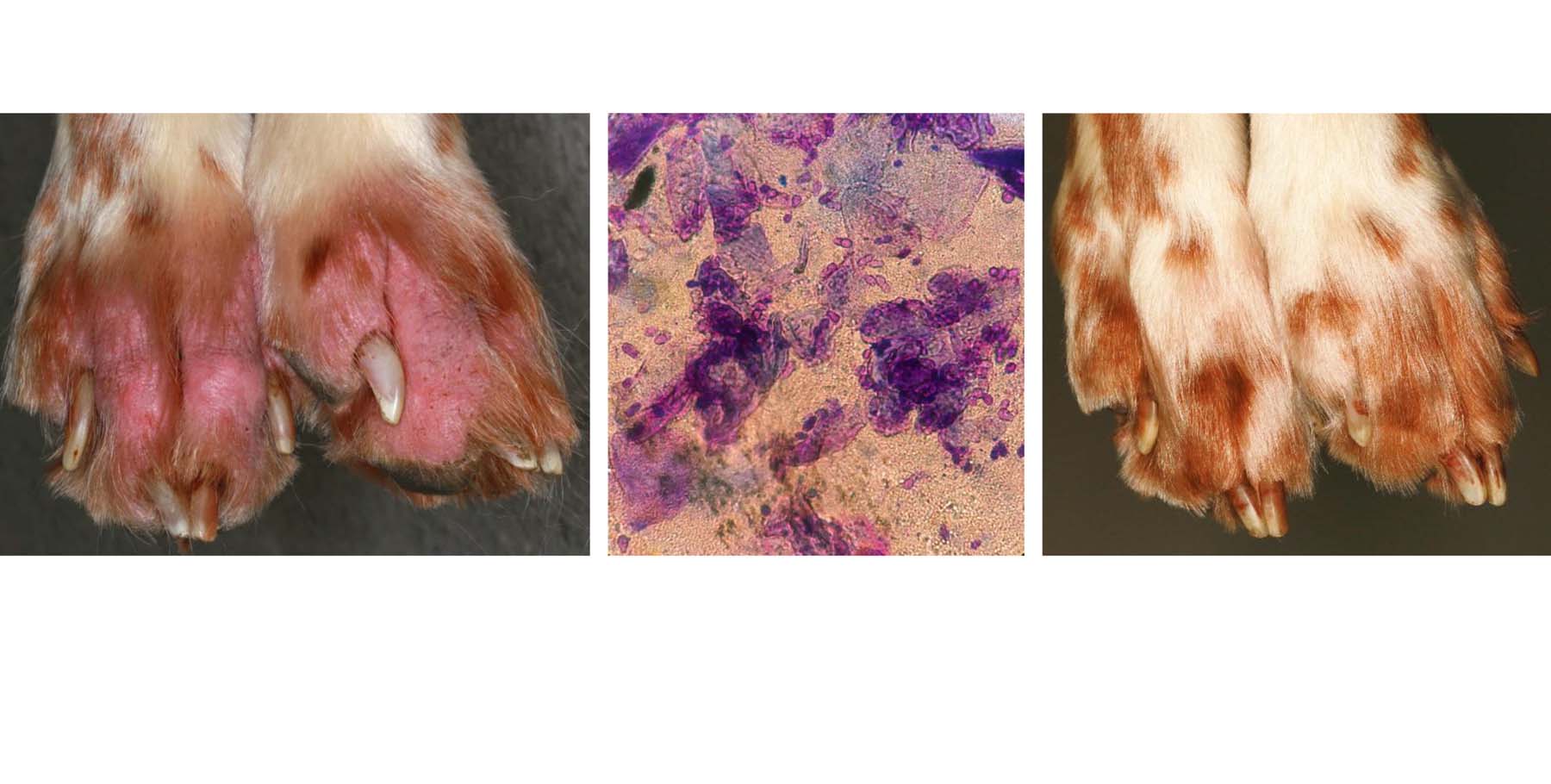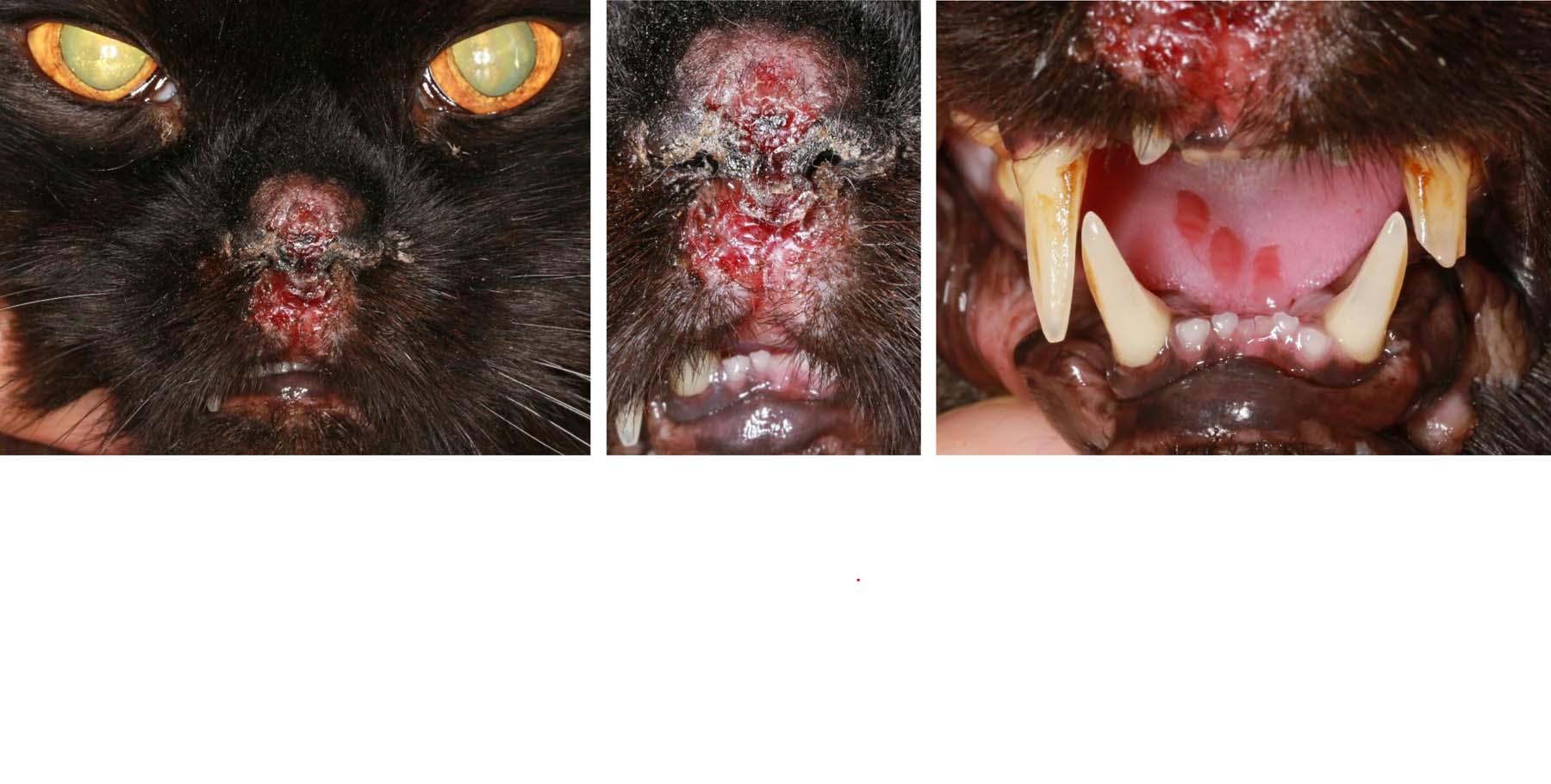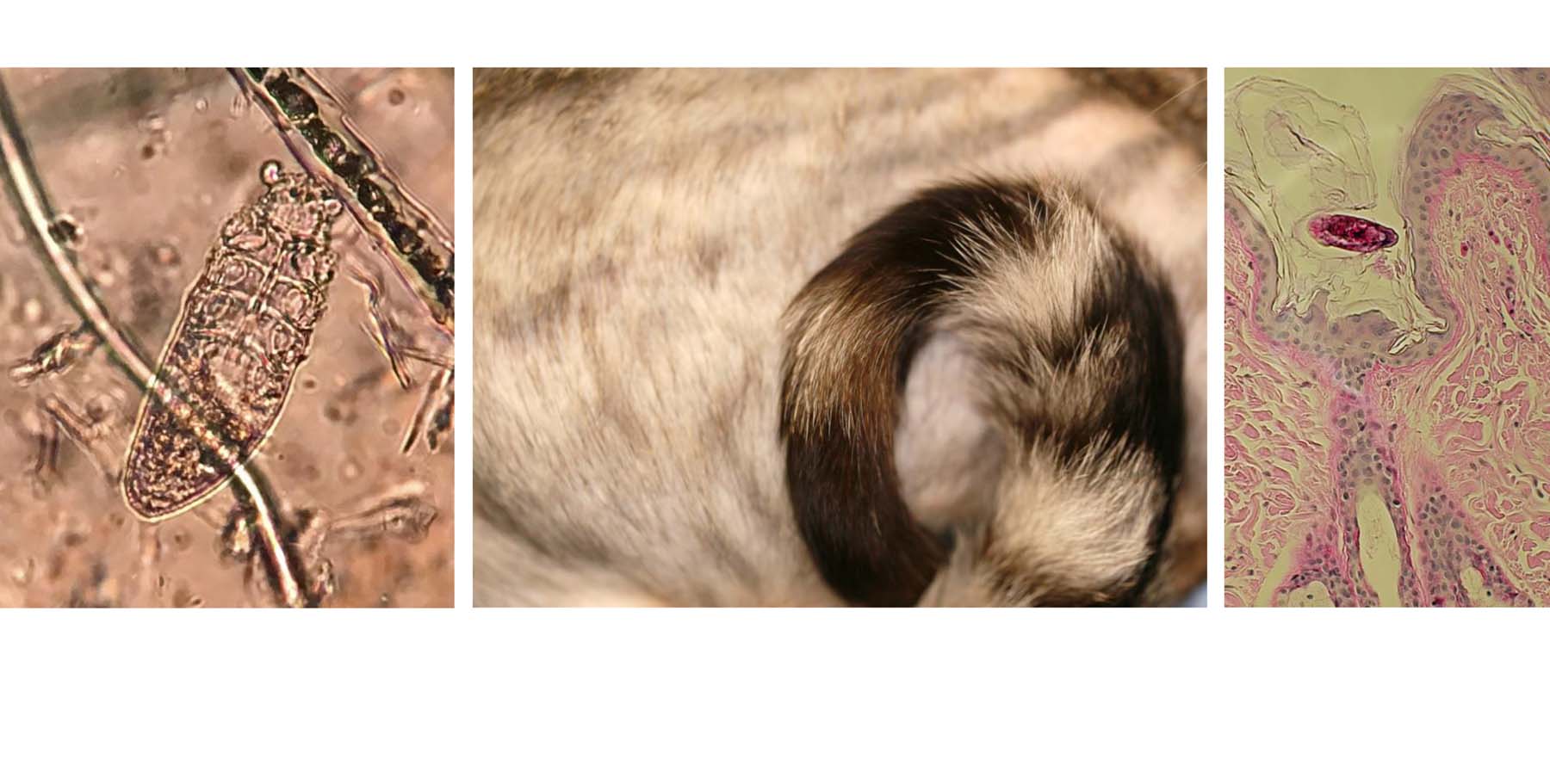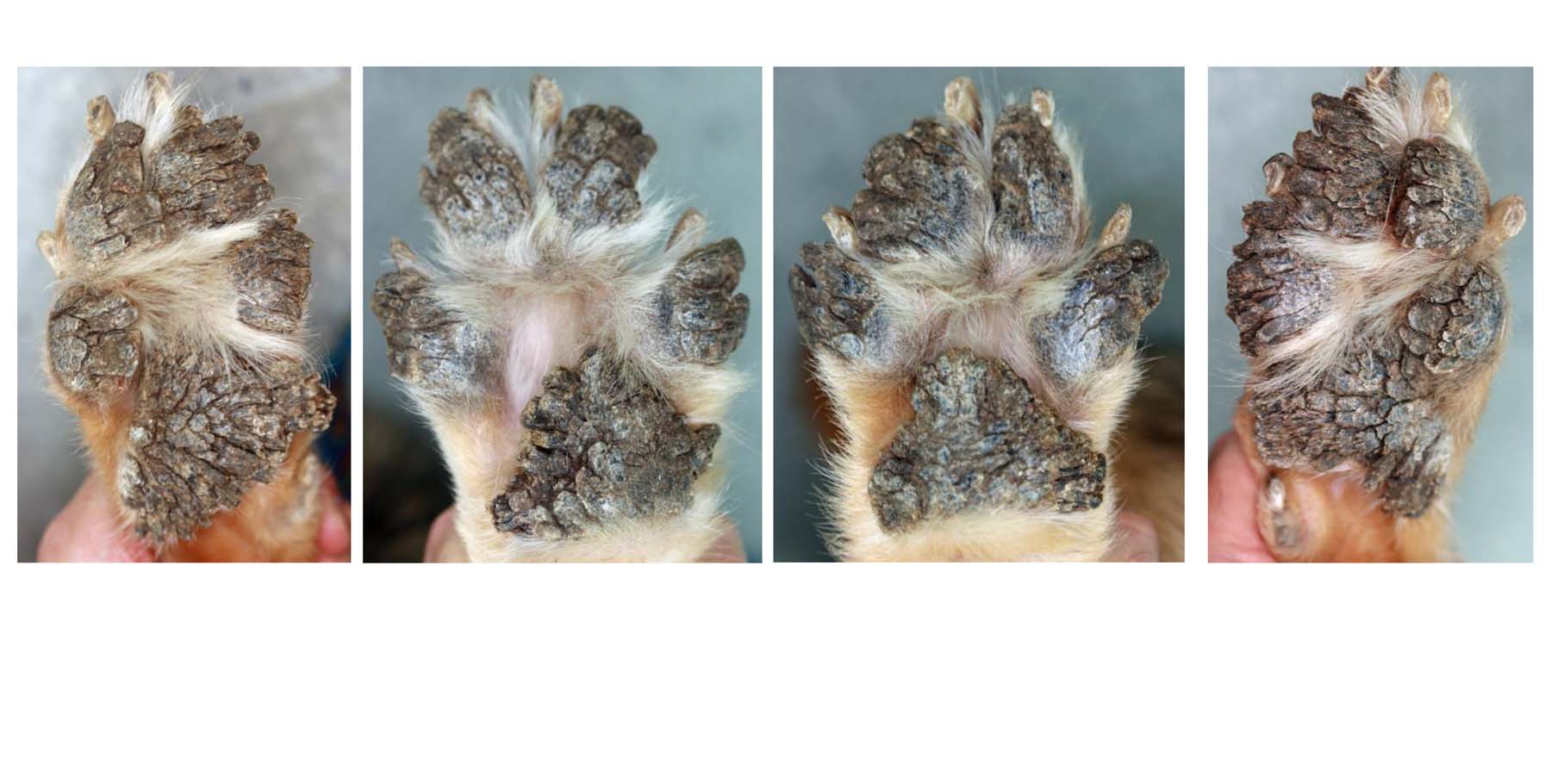It is not uncommon for clients to become disillusioned with standard (allopathic) treatments, especially when their pets suffer from chronic allergic dermatitis. I regularly see such clients, with pets, who have visited multiple veterinary practices and then, often in desperation, sought treatment with homeopathic remedies. I also acknowledge that other clients will prefer to have their pets treated homeopathically from the onset of their pet’s dermatological condition. I am very concerned about the lack of scientific evidence regarding the efficacy of these alternative treatments, especially when used to the exclusion of other medication. This concern has been emphasized by research1 that has proven the significant negative effects on the quality of life of my patients (and their owners) who both truly suffer when skin disease is uncontrolled.
I adopt a holistic approach to the management and treatment of skin disease in my patients which includes addressing not only proven systemic and topical treatment, but I will also address their nutrition as well as their social and physical environment, based on sound scientific knowledge. Modern, pro-active, holistic and allopathic treatment regimens can often be tailored to each individual case to ensure good long term efficacious treatment with minimal or no significant side effects.
I do not endorse the use of homeopathic ‘medication’ on my patients.
Just two case examples are the balding, itchy Bengal cat and the very sore, Doberman Pinscher, on the slider above:
The former was diagnosed, along with his sibling brother, to have stress-induced alopecia by a homeopathic vet. Psychogenic alopecia is rare and very over-diagnosed. Homeopathic treatment, Tuberculinum and Staphysagria, was unsuccessful. A subsequent client-driven second opinion lead to a rapid diagnosis of a rare Demodex gatoi mite infestation, both cats responded quickly to a single application of an antiparasite drug.
The latter case, registered with a charity clinic, was seen once only after another client-driven second opinion. He had been treated with an unnamed, holistic paste as well as ‘tree bark powder’, neem oil, turmeric powder and aloe vera. Adult-onset, generalised, demodectic mange with widespread deep bacterial infection, was diagnosed immediately, treated and cured with one single consultation. Incidentally this dog’s severe oral papillomatosis, a significant concurrent dermatological condition, also resolved once the demodicosis had been resolved.
Below are summaries of two very important statements from the RCVS & EASAB:
![]() The Royal College of Veterinary Surgeons
The Royal College of Veterinary Surgeons
In November 2017, RCVS Council approved a new position statement on the veterinary use of complementary and alternative medicines, including homeopathy.
‘We would like to highlight our commitment to promoting the advancement of veterinary medicine upon sound scientific principles and to re-iterate the fundamental obligation upon our members as practitioners within a science-based profession which is to make animal welfare their first consideration.
“In fulfilling this obligation, we expect that treatments offered by veterinary surgeons are underpinned by a recognised evidence base or sound scientific principles. Veterinary surgeons should not make unproven claims about any treatments, including prophylactic treatments.
“Homeopathy exists without a recognised body of evidence for its use. Furthermore, it is not based on sound scientific principles. In order to protect animal welfare, we regard such treatments as being complementary rather than alternative to treatments for which there is a recognised evidence base or which are based in sound scientific principles. It is vital to protect the welfare of animals committed to the care of the veterinary profession and the public’s confidence in the profession that any treatments not underpinned by a recognised evidence base or sound scientific principles do not delay or replace those that do.”
The RCVS President Professor Stephen May said: “I am very pleased that the overwhelming majority of Council members agreed with this statement and that the College has a firm and clear position on this important topic.”
The full statement can be read through this link: https://www.rcvs.org.uk/news-and-views/news/college-publishes-complementary-medicines-statement/
![]() The European Acadamies Scientific Advisory Council
The European Acadamies Scientific Advisory Council
In September 2017, EASAC, published this Statement to build on recent work by its member academies to reinforce criticism of the health and scientific claims made for homeopathic products. The analysis and conclusions are based on the excellent science-based assessments already published by authoritative and impartial bodies. The fundamental importance of allowing and supporting consumer choice requires that consumers and patients are supplied with evidence-based, accurate and clear information. It is, therefore, essential to implement a standardised, knowledge-based regulatory framework to cover product efficacy, safety and quality, and accurate advertising practices, across the European Union (EU).
Scientific mechanisms of action — EASAC concluded the claims for homeopathy are implausible and inconsistent with established scientific concepts.
Clinical efficacy — EASAC acknowledged that a placebo effect may appear in individual patients but agreed with previous extensive evaluations concluding that there are no known diseases for which there is robust, reproducible evidence that homeopathy is effective beyond the placebo effect. There are related concerns for patient-informed consent and for safety, the latter associated with poor quality control in preparing homeopathic remedies.
Promotion of homeopathy — EASAC note that this may pose significant harm to the patient if incurring delay in seeking evidence-based medical care and that there is a more general risk of undermining public confidence in the nature and value of scientific evidence.
Veterinary practice — EASAC concluded similarly that there is no rigorous evidence to substantiate the use of homeopathy in veterinary medicine and it is particularly worrying when such products are used in preference to evidence-based medicinal products to treat animals.
The full Statement complete with various recommendations can be accessed through this link: http://www.easac.eu/fileadmin/PDF_s/reports_statements/EASAC_Homepathy_statement_web_final.pdf
1 Impact of CAD on the health-related quality of life of affected dogs and the quality of life of their owners (Vet Derm., Vol 21, Issue 2, Oct 2010, Linek and Favrot)

